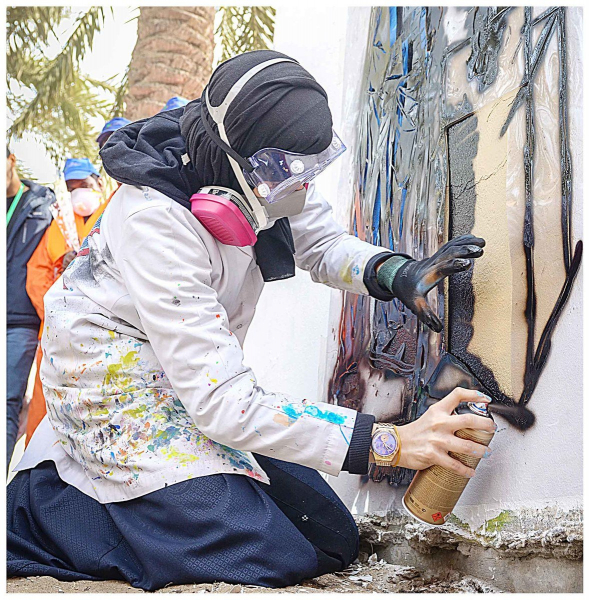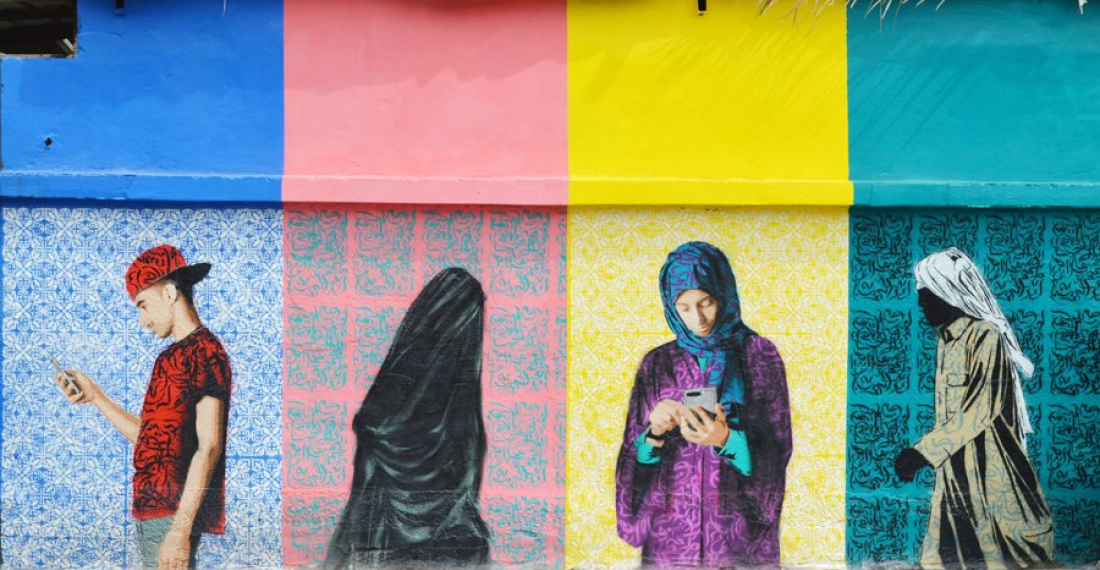Saudi graffiti artists are transforming blank walls into creative street art across the country. The Saudi Ministry of Culture has launched initiatives and programs to support graffiti work. The Ministry allocated specific locations where "street artists" can express themselves.
Graffiti is writing or drawings made on a wall or other surface, usually without permission and within public view using spray paint, paint by brush, markers, stencilling, and more.
“Graffiti is a great art form that has become one of the modern ways of beautifying public spaces,” Zainab Al-Mahoozi, a Saudi graffiti artist, told Arab News.
Graffiti has existed since ancient times in Egypt and Greece. But in Saudi Arabia, the art form started 20 years ago. The art scene was not organised at first but started to evolve in 2009 when a group of young men and women in Jeddah called the “Dad Family” sought to put an Arab touch on what was viewed back then as Western art.
Initially inspired by Arab characters and Islamic motifs, the Dad Family avoided political statements and started to promote a message of love through its graffiti. The art form later spread to the eastern parts of the country and artists started transforming blank walls existing alongside cafes, gyms, or garages.

“What distinguishes this art is the strong messages it carries for people as if it were an open and free exhibition,” said Al-Mahoozi, who started doing graffiti in the Kingdom more than 10 years ago.
“Children have also shown a great interest in this art on social media, where murals have become the perfect background for their photos.”
“I intentionally seek to find uncommon places, so that I can enhance and bring them back to life,” said street artist Houssam Al-Hassan.
“Graffiti combines the local culture of the society with the modern visions and different international schools,” Al-Hassan said. “Artists rely on simple drawings and styles that can reach everyone.”
With support from the Saudi culture ministry, the future is promising for Saudi street artists bright for street artists in the Kingdom.







